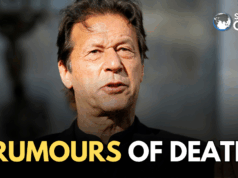Federal prosecutors revised the indictment against former President Donald J. Trump on Tuesday. The new version removes some charges and tweaks others to align with a recent Supreme Court ruling. This ruling granted former presidents broad immunity from prosecution for many official acts taken while in office.
The updated indictment, filed in Federal District Court in Washington, aims to preserve the core accusations against Trump. Special Counsel Jack Smith’s office wants to ensure that the case can move forward despite the Supreme Court’s landmark decision.
Key Changes to the Indictment
The revised indictment keeps much of the original case intact. Prosecutors still accuse Trump of plotting to overturn the 2020 election. However, they have removed any allegations related to Trump’s official actions as president. Instead, they are focusing on acts they argue were done as a private candidate for office.
The tone of the new charges is clear from the beginning. In the first paragraph, Trump is described as “a candidate for president of the United States in 2020,” rather than as “the 45th President of the United States,” as in the original indictment.
Timing and Legal Strategy
The new indictment comes just days before a crucial deadline. Both Trump’s legal team and Smith’s deputies are scheduled to present their plans to Judge Tanya S. Chutkan on how to proceed following the Supreme Court’s ruling. They are expected to file their proposals by Friday.
Prosecutors are also working to avoid the so-called 60-day rule. This Justice Department practice discourages any prosecutorial actions that might influence voters in the final two months before an election.
Trump Responds
In a post on social media, Trump criticized Smith and the revised indictment. He questioned the legitimacy of the changes and cast doubt on the motives of the special counsel’s team.
Impact of the Supreme Court Ruling
One of the most significant changes in the new indictment is the removal of all charges related to Trump’s attempts to pressure the Justice Department. The original indictment accused Trump of conspiring with Jeffrey Clark, a Justice Department official who had promised to support Trump’s false claims of election fraud.
However, the Supreme Court ruled that a president’s interactions with the Justice Department are part of their official duties. As a result, Trump cannot face criminal charges for those actions. The revised indictment reflects this ruling by eliminating all references to these dealings.
Focus on Pence and Electoral Certification
Despite the changes, much of the original indictment remains. Prosecutors have kept details of Trump’s interactions with then-Vice President Mike Pence and his staff. They emphasize that Pence was also Trump’s running mate, and Trump wanted him to act in his ceremonial role as president of the Senate during the certification of the election results.
Prosecutors argue that Pence’s role as president of the Senate placed him outside the scope of the core executive powers that the Supreme Court ruled were protected by presidential immunity.
Trump Still Faces Serious Charges
Despite the revisions, Trump continues to face the same four charges as in the original indictment. These include conspiracy to defraud the United States, obstruction of the certification of the election on January 6, 2021, and conspiracy to deprive millions of Americans of their right to have their votes counted. The prosecution’s strategy has shifted, but the case against Trump remains substantial.
With Reuters inputs
Thirty eight years in journalism, widely travelled, history buff with a preference for Old Monk Rum. Current interest/focus spans China, Technology and Trade. Recent reads: Steven Colls Directorate S and Alexander Frater's Chasing the Monsoon. Netflix/Prime video junkie. Loves animal videos on Facebook. Reluctant tweeter.




